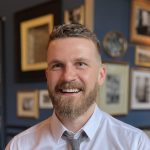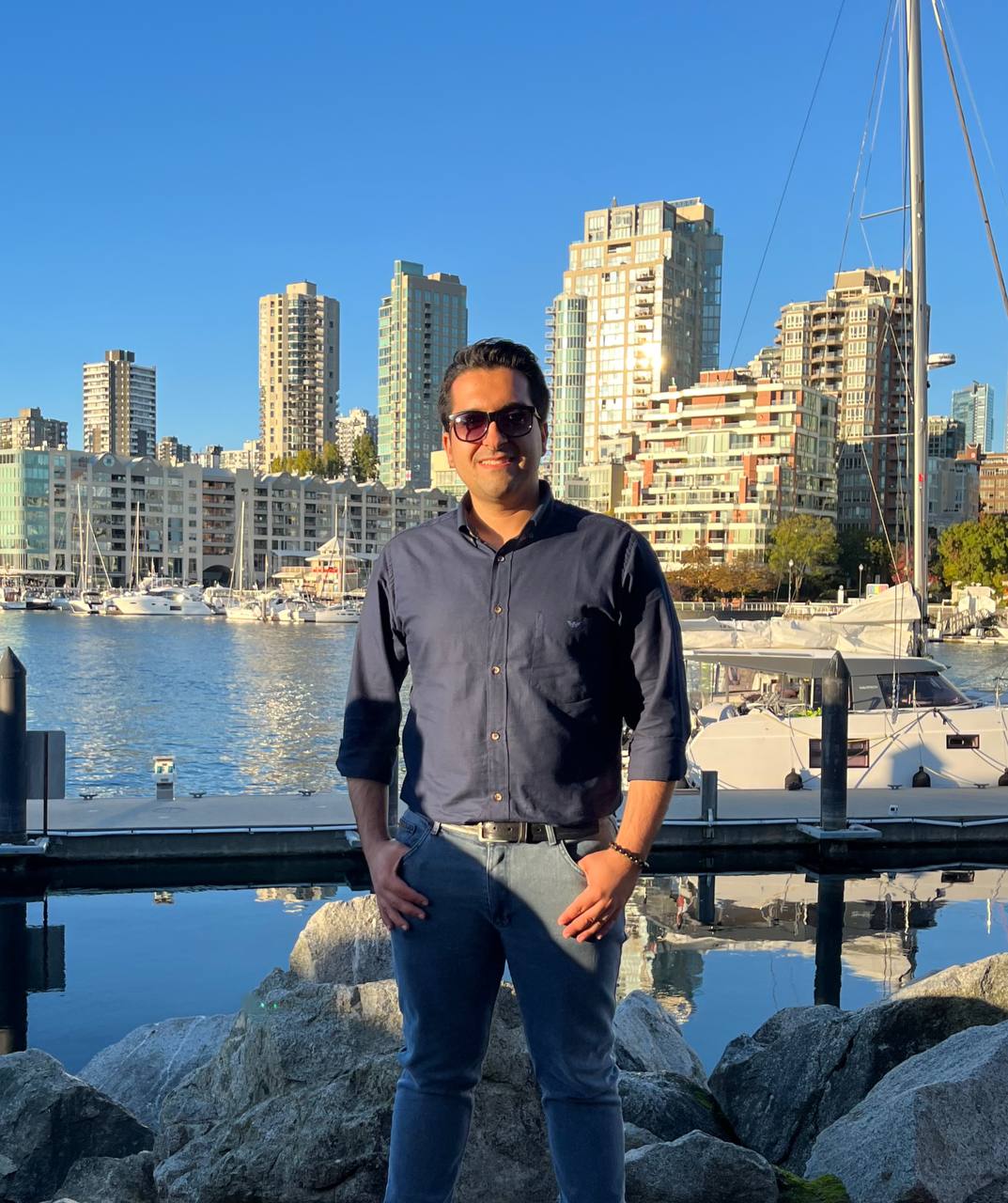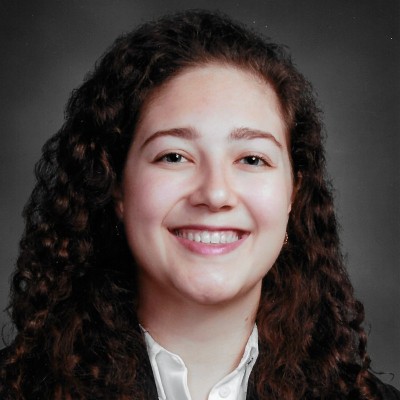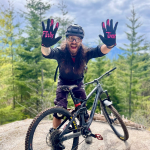Sensorimotor control relies on uncertain encoding of biologically relevant events and motor actions. Uncertainty in both processes shapes the multisensory integration of self-motion cues that is critical for movement. The long term objective of Sensorimotor Physiology Laboratory is to reveal the neural principles underlying sensorimotor integration of whole-body movement with a specific focus on vestibular physiology and standing balance. We combine computational modelling and innovative experimental approaches (including robotics and real-time delivery of physiological stimuli) to formalize, predict and test the governing principles underlying the sensorimotor control of whole-body movement.
The training of diverse highly qualified personnel represents a cornerstone of our research team. We are committed to Inclusive Excellence as described in the UBC Strategic Plan and we recognize that analyzing problems from different perspectives is key to innovation. This commitment is a shared responsibility between all researchers, trainees, staff and industrial partners involved in the lab activities. We make every effort to attract outstanding trainees from various natural sciences disciplines representing all races, religions and identities and adhere to recruitment practices favoring Equity, Diversity and Inclusion such as requesting application materials without personal information to avoid unconscious bias, assessment of candidate qualifications and abilities based exclusively on active work periods without penalty for career disruptions and review of candidate applications by both faculty and trainee members to ensure a diverse evaluation. To foster an Inclusive learning environment and to empower trainees to become future leaders in Equity, Diversity and Inclusion, all lab members participate in regular meetings, workshops, social gatherings as well as team building exercises to promote inclusion and support for all.
The Sensorimotor Physiology Laboratory is equipped with a feedback-controlled balance robot, mechatronic devices, rotary chair in a dark sound-proof room, virtual reality system, inversion apparatus, ultrasonography, 3D video-oculography, motion capture, accelerometry and force systems as well as neural & physiological measurement and stimulation units. A heavy duty multi-axis robotic arm and 6 DoF Stewart platform are also available through collaborations with MEA Forensic Engineers & Scientists, the Institute for Computing, Information and Cognitive Systems and Collaborative Advanced Robotics and Intelligent Systems on the UBC campus.
Projects
Sensorimotor Control of Balance
We have developed and validated a multi-axis standing balance robot that permits the uncoupling of the motor commands from their expected sensory consequences. This robotic device allows us to test predictions on how the brain integrates multisensory cues to maintain standing balance and probe the limits to the adaptability of the brain. We used this robot to reveal 1- fast adaptation and complete reversal of the vestibular control of balance when faced with a virtual surgeries of our ankle musculature and 2- learning to balance with induced sensorimotor delays well beyond those predicted by previous models. Our work challenges established models of balance control and its adaptability. Consequently, we use novel computational approaches to study how artificial intelligent agents leverage biomechanical constraints and integrate information from noisy sensors with other sources of internal uncertainty to learn to balance upright via the generation of noisy motor commands. The main objective of this modeling work is to develop physiologically and biomechanically realistic computational models explaining our exceptional ability to learn and adapt the control of balance when facing new environments or tasks.
Vestibular Physiology & Modelling
We use mechanical and electrical stimuli to understand how the brain integrates vestibular information to give rise to our sense of motion and govern eye/whole-body motor actions. Our recent work transformed the use and applicability of electrical stimuli to modulate and enhance vestibular signals in humans. We revealed the dynamics of primary vestibular afferents to electrical stimuli, implemented a real-time model for generating equivalent head motion and combined these findings with a model of vestibular visual cue integration. These critical results enable vestibular enhancement and recalibration that will improve the biomedical uses of electrical vestibular stimulation and integration of the vestibular sense in virtual reality environments. We also develop novel computational approaches to understand the potential benefits of sensory and motor variability for perception and motor actions as well as the factors contributing to uncertainty in our internal sense of motion.
Wearable Sensing and Real-Time Sensory Modulation
Using small cost-effective wearable sensors (e.g. inertial measurement units and micro-controllers), we can record whole-body body movements and modulate stimuli according to these movements in natural settings. We use portable devices to understand how humans maintain balance, navigate their environment, perform daily activities but also how they learn and adapt to novel stimuli that enhance/decrease sensory inputs. We have developed specific expertise in recording head kinematics with instrumented mouthguards and the real-time delivery of electrical stimuli for vestibular recalibration and motion/posture-dependent pain. These out-of-the-laboratory studies improve the ecological validity of studies by observing behaviours in their natural settings. They further enable us to study human movements and adaptations in contexts that can not be replicated in the lab (e.g., water sports, navigating complex terrains).
Neural Control of Neck & Back Muscles
We use comprehensive neurophysiological approaches to investigate the physiological processes enabling the sensorimotor control of the axial musculature. Our work spanning fundamental and applied research characterized the anatomy of lumbar muscle motor units, the distinct features underlying the neural control of neck muscles and the role of neck muscle activation in whiplash injury. Direct applications of this work include the identification of neuromechanical risk factors for injuries (including those associated with whiplash and roll-over accidents) and the development of potential mitigation strategies such as an intelligent car seat and stimuli targeting the neuromuscular control of neck muscle.
Collaborators:
- Mark Carpenter (Kinesiology, UBC)
- Romeo Chua (Kinesiology, UBC)
- Tim Inglis (Kinesiology, UBC)
- Calvin Kuo (Biomedical Engineering, UBC)
- Lyndia Wu (Mechanical Engineering, UBC)
- Martin Simoneau (Université Laval, Québec)
- Kathy Cullen (Johns Hopkins, USA)
- Chris Dakin (Utah State, USA)
- Patrick Forbes (Erasmus MC, Netherlands)
Affiliations:
- Origins of Balance Deficits and Falls Research Cluster
- Djavad Mowafaghian Centre for Brain Health
- Institute for Computing, Information and Cognitive Systems (ICICS)
People

Jean-Sébastien Blouin
Education
- Université Laval , 2004, PhD
- Université Laval, 2001, MSc
- Université du Québec à Trois-Rivières, 1999, DC
Employment
- Professor, School of Kinesiology, 2016
- Associate Professor, School of Kinesiology, 2011
- Assistant Professor, School of Kinesiology, 2006
Membership
- Society for Neuroscience
Current Trainees

Dr. Jesse Charlton
Jesse completed his MSc (2017) and PhD (2022) at UBC where he studied the biomechanical consequences of musculoskeletal disease, strategies to improve clinical and structural outcomes of knee osteoarthritis through modifying movement, and the application of wearable sensors to monitor movement in free-living contexts. He joins the Sensorimotor Physiology Laboratory and the Human Motion Biomechanics Laboratory (SBME) as a post-doctoral fellow to investigate the interplay between movement variability and motor adaptation during locomotion. His research uses a motion-stimulation coupled wearable system to generate movement-evoked experimental pain to drive adaptation in real-world environments.
Funding: Michael Smith Health Research BC Trainee Award

Calvin Qiao
Calvin Qiao is a PhD student in mechanical engineering at UBC. His research focuses on (1) modeling the biomechanics of standing balance for robotic simulation and control, and (2) understanding the neural correlates underlying the balance adaptation/learning processes and associated deficits.
Funding: UBC 4YF, NSERC, Michael Smith Foundation for Health Research

Amin MohammadiNasrabadi
I’m a Ph.D. student started from September 2021 in the Sensorimotor Physiology Lab and I'm keen to learn and understand how brain works. For my Ph.D. I will work on a physiological computational model based on reinforcement learning to investigate how the brain adapt itself to changes in biomechanics of standing balance. I did my B.Sc. and M.Sc. in The Sharif University of Technology Tehran Iran, in the field of Mechanical engineering Applied design. The focus of my studies was on Biomechanics, Rehabilitation, and Artificial Intelligence.
If you wish to learn more about the projects that I’m working on, feel free to send an email to the following address:
amin.nasr[at]ubc.ca

Xueqing Zhou
Xueqing completed her Bachelor’s in Kinesiology with a minor in Psychology at UBC. Her research interests are on the neurophysiology and neurorehabilitation after spinal cord injury, with a focus on the locomotor and urogenital systems. Her current thesis project aims to explore the corticomuscular coherence of the pelvic floor muscles using electroencephalography (EEG) and electromyography (EMG). In her free time, Xueqing enjoys travelling, drawing/painting, being active, and trying out new things. Xueqing is co-supervised by Drs. Jean-Sébastien Blouin and Tania Lam.

Caroline Aitken

Alex Liu
Alex is an MSc student under the supervision of Dr. Jean-Sébastien Blouin and he was a graduate of the Bachelor of Kinesiology program at UBC. His research interest includes injury biomechanics and proprioception. He is currently investigating the concept of higher level proprioception in the humans.
Contact: alexllz[at]mail.ubc.ca

Hayden Sidey-Phillips
Hayden completed his B-Kin in the spring of 2020 with a health sciences specialty. He first developed an interest in research while participating in the Program for Undergraduate Research Experience (PURE) during his last semester of UBC during which he participated in and aided with data collection for 2 labs at UBC, ICORD, and one at UBC Okanagan. He is an accomplished ski race coach, formerly running a high-performance program out of Cypress Mountain and has started his own ski boot fitting business which aims to reduce waste in the industry by repairing and adjusting people’s existing equipment. He enjoys ski touring, mountain biking, hiking, and playing with his 2 cats during his time away from work and the lab. His research is focused on identifying how people learn to stand and balance in new environments. He will be using surfing as the new environment for his research and will be collecting data from multiple inertial measurement units attached to participant’s bodies in addition to sensors integrated into the surf board itself.
Previous Trainees
- Belzner, Paul – MSc (2023)
- Foulger, Liam – MSc (2023)
- Liu, Candy – MSc (2023)
- Chen, Anthony – PhD (2023)
- Partovi, Reza – MSc (2022)
- Wang, Jiyu – MSc (2021)
- Kuo, Calvin – PDF (2020)
- Mang, Daniel – PhD (2019)
- Tisserand, Romain – PDF (2019)
- Abboud, Jacques – PDF (2019)
- Gallina, Alessio – PDF (2019)
- Fice, Jason – PhD (2019)
- Khrosravi-Hashemi, Navid – PDF (2018)
- Woo, Emma – MSc (2018)
- McKendry, Geoff – MSc (2018)
- Peters, Ryan – PDF (2017)
- Rasman, Brandon Gerald – MSc (2016)
- Rebchuk, Alex – MSc (2016)
- Wang, Philip – MASc (2016)
- Forbes, Patrick – PDF (2016)
- Dalton, Brian – PDF (2014)
- Pospisil, Eric – MASc (2014)
- Shepherd, Myles – MSc (2014)
- Brown, Harrison – MSc (2013)
- Dakin, Christopher James – PhD (2012)
- Luu, Billy – PDF (2012)
- Huryn, Thomas – MASc (2012)
- Héroux, Martin – PDF (2011)
- Law, Tammy Che-Yan – MSc (2011)
- Mang, Daniel – MSc (2010)
Opportunities
Please contact Dr. Jean-Sébastien Blouin (jsblouin [AT] mail.ubc.ca) if interested in inquiring about graduate supervision, volunteer opportunities, or to participate as a subject in one of our ongoing studies.
Contact Us
Office address:Lower Mall Research Station, Room 350
2259 Lower Mall
Vancouver, BC V6T 1Z4
Mailing address:
War Memorial Gymnasium, Room 210
6081 University Boulevard
Vancouver, BC V6T 1Z1
604–827–3372
jsblouin [at] mail.ubc.ca